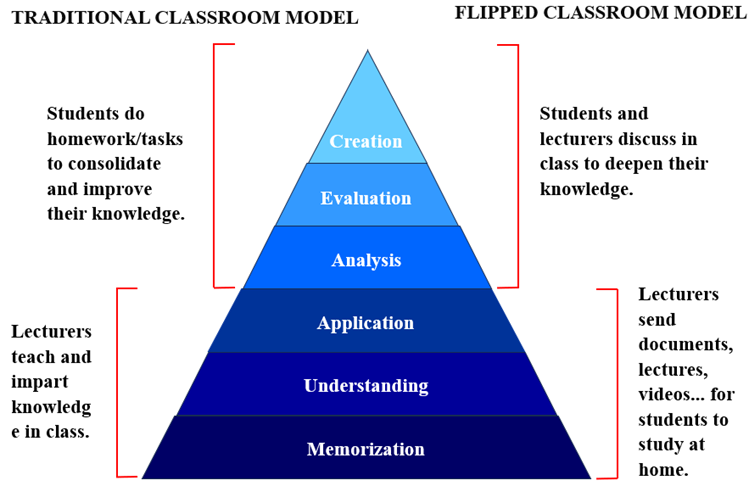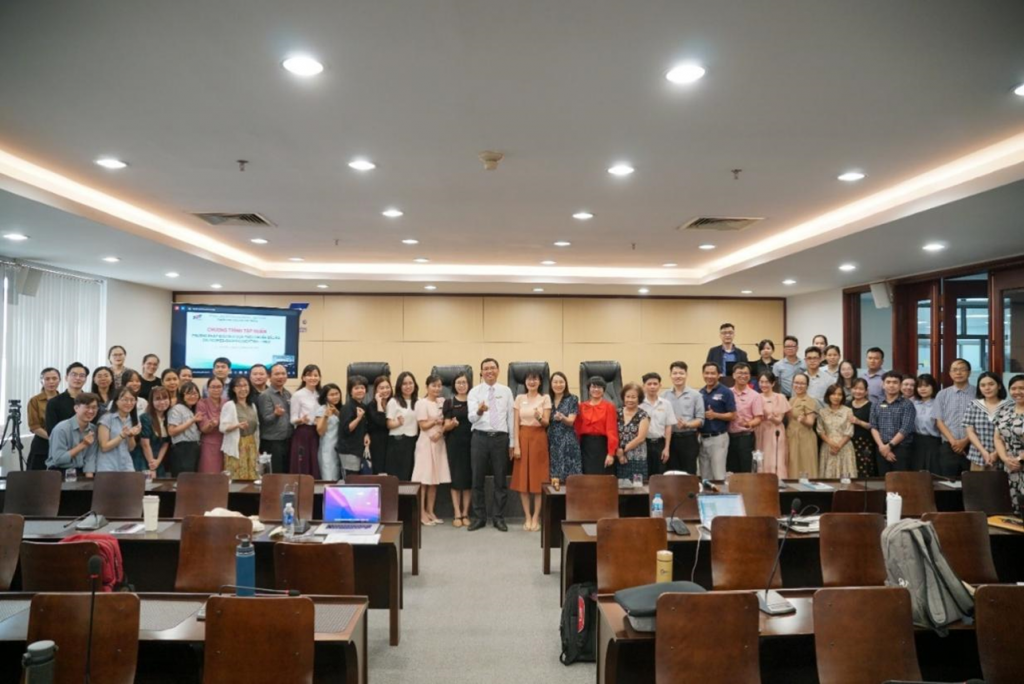On June 4, 2024, in room A403, Ton Duc Thang University (TDTU) organized a session titled "Sharing experiences in applying the flipped classroom model to teaching engineering groups". Participating in the sharing session were representatives from various departments, including Dr. Nguyen Cong Trang - Lecturer of the Department of Electrical Engineering, Faculty of Electrical and Electronics Engineering (FEEE), as well as lecturers from other faculties within the TDTU.
Teaching using the flipped classroom model is one of the modern teaching methods that aims to overcome the limitations of traditional teaching methods and meet the educational innovation requirements of today's era. The general principle of this method is to place the learner at the center of the learning process. The scientific basis of the flipped classroom is built upon 6 levels, which include memorization, understanding, application, analysis, evaluation, and creation. Specifically, the first 3 levels (memorization, understanding, application) are completed by students at home through lecture videos/slides, forums, and learning materials on the E-learning system platform or through accessing materials from the school library and other online sources. The in-class time is then dedicated to interaction, discussion, and knowledge improvement between lecturers and students, aiming to achieve higher levels of analysis, evaluation, and creativity.

The application of the "flipped classroom" model in teaching has shown that it not only fosters initiative and interest in learning for students but also contributes to the innovation of teaching methods, improves learning efficiency, and helps develop critical thinking and skills among learners.
Through the successful application of the flipped classroom model to the Electric Safety course, first semester of the 2023-2024 academic year. At the sharing session, Dr. Nguyen Cong Trang delved into the concept of the flipped classroom model, sharing experiences in designing the flipped classroom model, along with the implementation process and results of implementing the model for the engineering major group. At the end of the sharing session, Dr. Nguyen Cong Trang expects that "In the future, continuing to monitor and evaluate the model will be necessary to continue improving and optimizing the flipped classroom model to achieve even greater success." Overall, the sharing session was successful, effective and promising, creating a solid foundation for implementing and replicating the flipped classroom model at the FEEE in particular and at other Faculties within the TDTU in general.
Some photos at the sharing session:






